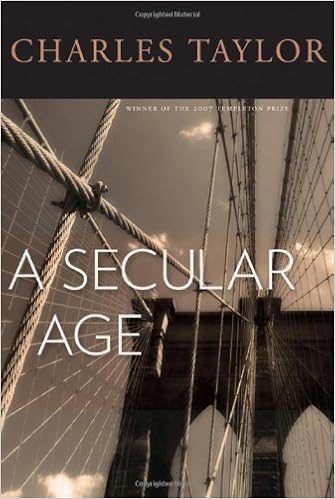
It is not surprising that there are more than a few reviews which give less than the full five stars. I have read a few of them, and I am inclined to thing comments about its being "unreadable" are just a bit unfair. I found it relatively easy to read. Make no mistake about the subject. It is scholarly and just a bit conjectural.
I came to it before I realized it was one of the famous Gifford Lectures in natural theology. This means something, as only those people with well-established credentials in a subject related to theology is offered the chance to give them. The best known Gifford Lecture series to most of us is William James' classic "The Varieties of Religious Experience" In fact, Taylor even wrote a book on James' lectures. A small one, thankfully.
My first impression of Taylor's book (unlike the one by James) is that it could have been much shorter, and still made the main points. His primary thesis is that modern secularity began with the Reformation. Parts of his argument may be thin, and I am inclined to wish he would have cited some more concrete examples. When he mentions Jonathan Edwards, for example, he does not explain how citing Jonathan Edwards makes his point (not everyone knows much about Edwards beyond that one famous sermon.)
What really convinced me to drop my rating from five stars to four is that this thesis is not new. It was part of Max Weber's famous thesis about capitalism and the Protestant ethic. In fact, one of the best things I got from Taylor's book is Weber's application of the word "disenchanted" to the change in world view as a result of the Reformation. Taylor gives fair credit to Weber on detailed points (mentioning Weber 12 times and his Protestant Ethic book 5 times.
Where Taylor goes beyond Weber is that he is looking at the secular world from the post-Christian era, rather than Weber, who was comparing it to the way of life before the Reformation. His argument is also elaborate in its description of three types of secularity. Taylor is probably easier to read than Weber, but he makes me want to go back and see some of the finer points Weber made, since his basic idea seems to be alive and well, in spite of some heavy criticism.
The notes were good, but for a scholarly book, I found them just a bit thin. I would have liked more substance in the references. You may want to check out one of Taylor's shorter books to see if you like his writing, before commiting to reading this very long work.
No comments:
Post a Comment